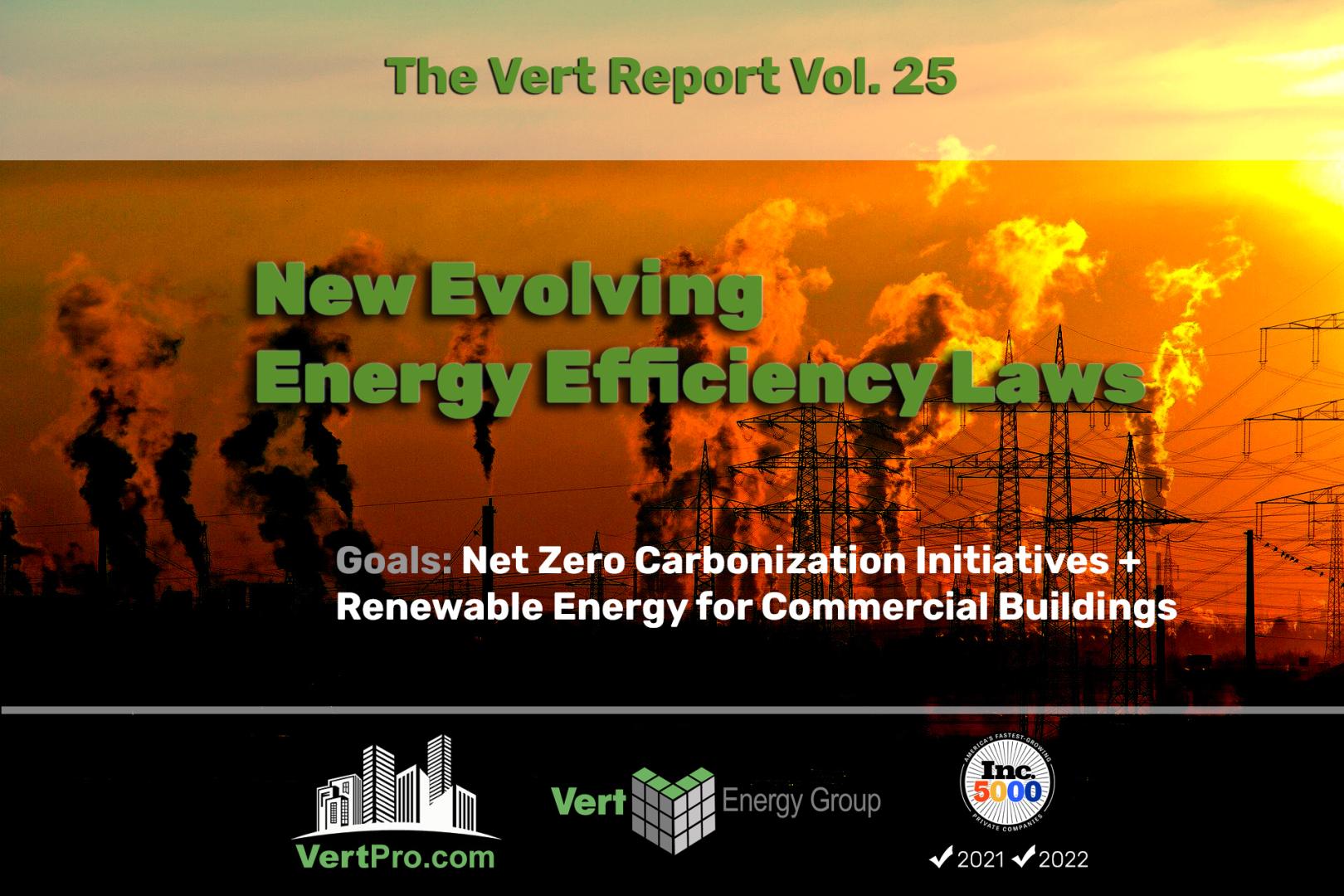Today, nearly everyone accepts that we must transition away from the use of fossil fuels, as the damage happening to our planet and environment is astronomical. This has led to many science and business innovations as we search for new sustainable or renewable alternatives to coal, oil, and gas.
One such innovation is energy efficiency. This is the practice of using less energy to achieve the same goal, whether that’s powering a home, running a business, or manufacturing a product. For example, new energy-efficient lightbulbs use less electricity than traditional incandescent bulbs to produce the same amount of light. In the United States, new energy efficiency standards for appliances and equipment have led to significant savings in electricity use. New laws and regulations are increasingly requiring that products use less energy, and while some of these new efficient products may cost more upfront, over time they save money and help reduce our reliance on fossil fuels.
As the world transitions to a low-carbon future, energy efficiency will play a critical role in reducing greenhouse gas emissions and slowing the rate of climate change. In 2018, the United States updated its energy efficiency standards for commercial buildings. These new standards will require new buildings to be more energy efficient than ever before, and they will spur businesses to invest in energy efficiency upgrades for existing buildings. The new standards are estimated to save businesses $12 billion in energy costs over the next 30 years. And by 2030, the standards are expected to reduce carbon dioxide emissions by 160 million metric tons—the equivalent of taking 33 million cars off the road for a year.
As energy efficiency becomes an increasingly important issue for cities, states, and the nation, new energy laws and regulations are being enacted to mandate better performance from commercial and multifamily properties. Metrics you need to reach, deadlines, and specifics on how to file your energy performance with your municipality vary from city to city.
For commercial building owners, new energy efficiency laws are taking effect that will require significant improvements in the way their buildings use energy. These laws are designed to promote energy conservation and reduce greenhouse gas emissions. Many commercial building owners are already taking steps to improve their buildings’ energy efficiency, but the new laws will require even more changes. There are incentives for those who do make their buildings more energy efficient, including tax breaks, utility rebates, and other financial assistance. It is also important to note that building owners who don’t comply with the new laws may be subject to fines or other penalties.
An example of such regulations is the newly adopted standards for consumer appliances and the energy-saving rules for federal buildings. The U.S. Department of Energy (DOE) released new building energy code requirements “that will save taxpayer dollars and ensure that the federal government leads by example in energy efficiency. Beginning in April 2023, all new buildings and major retrofits constructed by the Federal government must comply with the 2021 International Energy Conservation Code (IECC) and the 2019 American Society of Heating, Refrigerating, and Air Conditioning Engineers Standard 90.1 building energy codes. DOE estimates that this measure will save $4.2 million dollars in operating costs within the first year of implementation.” Source
Another example is California’s Building Decarbonization Partnership. The Building Decarbonization Partnership is a voluntary, non-regulatory program that helps buildings stakeholders identify and overcome barriers to achieving deep energy savings in their buildings. The Partnership provides resources and technical assistance to help participants save energy, money, and water, and achieve their climate goals. The Partnership is open to any multifamily or commercial building owner, manager, or operator who is interested in reducing energy use and greenhouse gas emissions in their buildings. There is no cost to participate in the Partnership. “California’s buildings produce a quarter of the state’s greenhouse gas (GHG) emissions, making homes and businesses a major factor in climate change. The California Building Decarbonization Assessment provides a framework to tackle the challenges in developing a path toward reducing GHG emissions associated with California’s buildings.” Source
These are just two examples of how the United States is leading the way in energy efficiency. While making your commercial building more energy efficient can be a challenge, it’s one that is well worth the effort. Not only will you save money, but you’ll be doing your part to help protect our environment.
“In reality, studies show that investments to spur renewable energy and boost energy efficiency generate far more jobs than oil and coal.”-Jeff Goodell
Upcoming Energy Audits deadlines for (LA, SF, SJ, Austin Tx, Seattle WA, Atlanta GA, Boston, Washington State)
 With consistently updating laws and ever-changing regulations, we have compiled a list of important dates and requirements for the upcoming Energy Audit deadlines for Los Angeles, San Francisco, San Jose, Austin, Seattle, Atlanta, Boston, and the state of Washington. Mark your calendars with important dates, and requirements to avoid potential fines/violations.
With consistently updating laws and ever-changing regulations, we have compiled a list of important dates and requirements for the upcoming Energy Audit deadlines for Los Angeles, San Francisco, San Jose, Austin, Seattle, Atlanta, Boston, and the state of Washington. Mark your calendars with important dates, and requirements to avoid potential fines/violations.
|
Location |
Deadline |
Additional Requirements: |
|
Los Angeles, CA |
June 1, 2023: Bldg IDs ending in “4” December 1, 2023: Bldg IDS sending in “5” |
Energy Audit, Water Audit & Retro-Commissioning (Every 5 years) |
|
San Francisco, CA |
April 1, 2023 |
Energy Audit or RCx (Every 5 years) |
|
San Jose, CA |
May 1, 2023 |
Last Digit of APN 0,1 |
|
Atlanta, GA |
December 31, 2023 |
*2022 deadline, extended to January 4th, 2023 *Every 10 years) starting in 2020 |
|
Boston, MA |
June 15, 2023 |
Every 5 years starting in 2010 |
|
Austin, TX |
June 1, 2023 |
Energy Audits + Mandatory Upgrades |
|
Seattle, WA |
October 1, 2023 |
Periodic Tune-Ups for Larger Commercial Buildings |
|
Washington (State) |
April 1, 2023 |
Energy Audits |
Audits and RCx can take substantially longer than benchmarks as on-site inspections conducted by licensed professionals (LP) are required. A minimum of one on-site inspection is required to gather information and depending on the complexity and size of the building, additional on-site visits may be needed to get a full scope of the building and its systems and equipment. Any missing information can cause inaccurate reporting and delay the process of filing. To assure compliance by the deadline it is suggested that you request your audit 6-9 months prior to the due date, making this the time to start planning for 2023!
Fines or Violations for missed Energy Benchmark Deadlines
 Missed benchmark deadlines can be a costly mistake for building owners. Every year building owners and managers are required to ensure their property is in compliance with their local city or state energy benchmark programs. Many benchmarking programs have penalties, and failure to file can result in written warnings and/or monetary fines. Non-compliance fines can add up quickly, so it is important to be aware of deadlines and the penalties for missing those deadlines. While not all benchmark programs have monetary fines or official warnings, each city and state agency keeps records. These are often made public via a compliance list, to hold building owners accountable and enforce compliance. These compliance lists can be located on your local city or state benchmarking website or by contacting your local programs support line directly.
The following is a complete chart of Benchmark programs with existing penalties for non-compliance:
Missed benchmark deadlines can be a costly mistake for building owners. Every year building owners and managers are required to ensure their property is in compliance with their local city or state energy benchmark programs. Many benchmarking programs have penalties, and failure to file can result in written warnings and/or monetary fines. Non-compliance fines can add up quickly, so it is important to be aware of deadlines and the penalties for missing those deadlines. While not all benchmark programs have monetary fines or official warnings, each city and state agency keeps records. These are often made public via a compliance list, to hold building owners accountable and enforce compliance. These compliance lists can be located on your local city or state benchmarking website or by contacting your local programs support line directly.
The following is a complete chart of Benchmark programs with existing penalties for non-compliance:
|
Benchmark Program |
Annual Deadline |
Penalty for Non-Compliance |
|
Atlanta Commercial Buildings Energy Efficiency Ordinance |
June 1st |
$1,000 |
|
Austin Energy Conservation Audit & Disclosure (ECAD) Ordinance |
June 1st |
$500-2,000 |
|
Berkeley Building Energy Saving Ordinance |
July 1st |
$100-1,000 |
|
Boston Energy Reporting & Disclosure Ordinance |
May 15th |
$35-200 |
|
California Assembly Bill 802 (CA AB802) |
June 1st |
$500-2,000 |
|
Cambridge Building Energy Use Disclosure Ordinance |
May 1st |
$300/day |
|
Chicago Building Energy Use Benchmarking Ordinance |
June 1st |
$100 + $25/day |
|
Chula Vista Building Energy Saving Ordinance |
May 20th |
$750-2,250 |
|
Denver Commercial & Multifamily Building Benchmarking |
June 1st |
$2,000 |
|
Des Moines Energy & Water Benchmarking Ordinance |
May 1st |
$50 + $300-500/day |
|
Evanston Building Energy & Water Use Benchmarking Ordinance |
June 30th |
$100 |
|
Fort Collins, CO Ordinance 144 Building Energy & Water Scoring |
March 1st |
$1,000 |
|
Los Angeles Energy & Water Efficiency (LA EBEWE) |
June 1st |
$202 |
|
New York City Local Law 84 (NYC LL84) |
May 1st* |
$500-$2,000 |
|
Philadelphia Building Energy Benchmarking Ordinance |
June 30th |
$300 + $100/day |
|
Pittsburgh Building Benchmarking Ordinance |
June 1st |
Publicly listed non-Compliant |
|
Portland Energy & Water Use Performance Benchmarking Ordinance (Maine) |
May 1st |
$20/day |
|
Portland Commercial Building Energy Reporting (Oregon) |
April 22nd |
$500 |
|
Reno Energy & Water Efficiency Program (Ordinance 7068) |
April 1st |
$850 |
|
Saint Louis Building Energy Awareness Bill |
April 1st |
$50-1,000 |
|
Salt Lake City Elevate Buildings |
May 1st |
$500-1,000 |
|
San Francisco Existing Commercial Buildings Energy Performance Ordinance (SF EBO) |
April 1st* |
$50-2,500 |
|
Seattle Council Bill 116731 (CB116731) |
July 1st |
$150-500/day |
Quote: “Energy-saving technologies keep improving faster than they’re applied, so efficiency is an ever larger and cheaper resource.” – Amory Lovins
Top 10 Vert Employees Halloween Movies

Halloween movies are a great way to get into the Halloween spirit. Whether you’re looking for spooky, funny, family-friendly, or just downright creepy, there’s sure to be a Halloween movie out there for you. Grab some popcorn and get ready to be scared because the Vert Energy Team has compiled a list of our all-time favorite movies to watch on All Hallows Eve and these are the top 10 winners!
In order of the most suggested titles by employees:
- Hocus Pocus
- Nightmare on Elm Street
- Halloweentown
- The Nightmare before Christmas
- Halloween
- Practical Magic
- The exorcist
- Young Frankenstein
- The Thing
- Scary Movie
As one of the most iconic Halloween movies of all time, it’s no surprise Hocus Pocus was the most chosen Halloween movie to watch among Vert Energy Group employees! Hocus Pocus has been praised for years for its humor, performances, and iconic songs. For an extra special surprise, head on over to Disney+, as Disney released Hocus Pocus 2, just in time for Halloween 2022! Gather your coven, grab your candy corn, and prepare for the ultimate Halloween movie night with a Hocus Pocus double feature!
Fun Fact:
 Halloween is a big industry in America. Every year, Americans spend billions of dollars on Halloween costumes, decorations, and candy. The Halloween industry has grown significantly in recent years, and it shows no signs of slowing down. According to the National Retail Federation‘s seasonal shopping trends this year, conducted by Prosper Insights & Analytics, Americans are predicted to spend $2.6 billion buying candy for Halloween, in comparison to $3.2 billion on costumes and $2.7 billion on decorations. 172 million people in the United States celebrate Halloween — and about 95% are predicted to purchase candy. That’s a lot of candy corn!
Halloween is a big industry in America. Every year, Americans spend billions of dollars on Halloween costumes, decorations, and candy. The Halloween industry has grown significantly in recent years, and it shows no signs of slowing down. According to the National Retail Federation‘s seasonal shopping trends this year, conducted by Prosper Insights & Analytics, Americans are predicted to spend $2.6 billion buying candy for Halloween, in comparison to $3.2 billion on costumes and $2.7 billion on decorations. 172 million people in the United States celebrate Halloween — and about 95% are predicted to purchase candy. That’s a lot of candy corn!

Stephanie’s Section
Houdini’s Final Performance
Halloween, a fun holiday with costumes, and candy, also happens to be the death date of one of the best escape artists in history, Harry Houdini.
Harry Houdini was a famous magician who dazzled crowds for over 30 years. He was born in Hungary in 1874, and he immigrated to the United States with his family when he was a young boy. Houdini was known for his daring escape acts. He would escape from handcuffs, chains, and even straight jackets, often in water or other dangerous situations. Houdini was also an accomplished aviator, and he set many records for flying machines.
On October 24, 1926, Harry Houdini was performing at the Princess Theatre in Montreal. During his show, he invited a member of the audience to come onstage and punch him in the stomach as hard as they could. This was part of Houdini’s act, and he had done it many times before without incident. However, this time was different. The student who punched Houdini, J. Gordon Whitehead, hit him so hard that Houdini collapsed and had to be taken to the hospital.
Houdini initially seemed to recover from the incident, but his condition quickly deteriorated. He is said to have died of peritonitis after his appendix ruptured, but the circumstances of his death remain mysterious to this day. At age 52, on October 31, 1926, Halloween night, Harry Houdini died.
While none would argue Harry Houdini’s death was a tragic event, some people believe that Harry Houdini’s death was not accidental. There are many wild theories about what really happened to Houdini, and many seem to believe that he was murdered.
One theory is that Houdini was killed by the Mafia. It’s well known that Houdini was very critical of the Mob, and he had made enemies within the organization. It is possible that the Mafia ordered Whitehead to punch Houdini in the stomach as a way of getting revenge.
Another theory is that Houdini was killed by the KGB. This theory emerged after the release of previously classified documents in 2006. These documents showed that Houdini had been under surveillance by the KGB for many years. It is possible that the KGB ordered Whitehead to punch Houdini to silence him.
Whether or not he was murdered, his death shocked the world, and his legacy has lived on ever since. Harry Houdini was a true pioneer in the world of magic, and his death is still the subject of conversation decades later.
 Search by Zip to Find Applicable Energy Laws
Search by Zip to Find Applicable Energy Laws
There are over 30 cities/states with Energy Benchmark requirements - 16 have Energy Audit requirements as well! Use this free tool to check if your building has an upcoming Energy Benchmark or Energy Audit deadline.
FIND OUT HERE »
